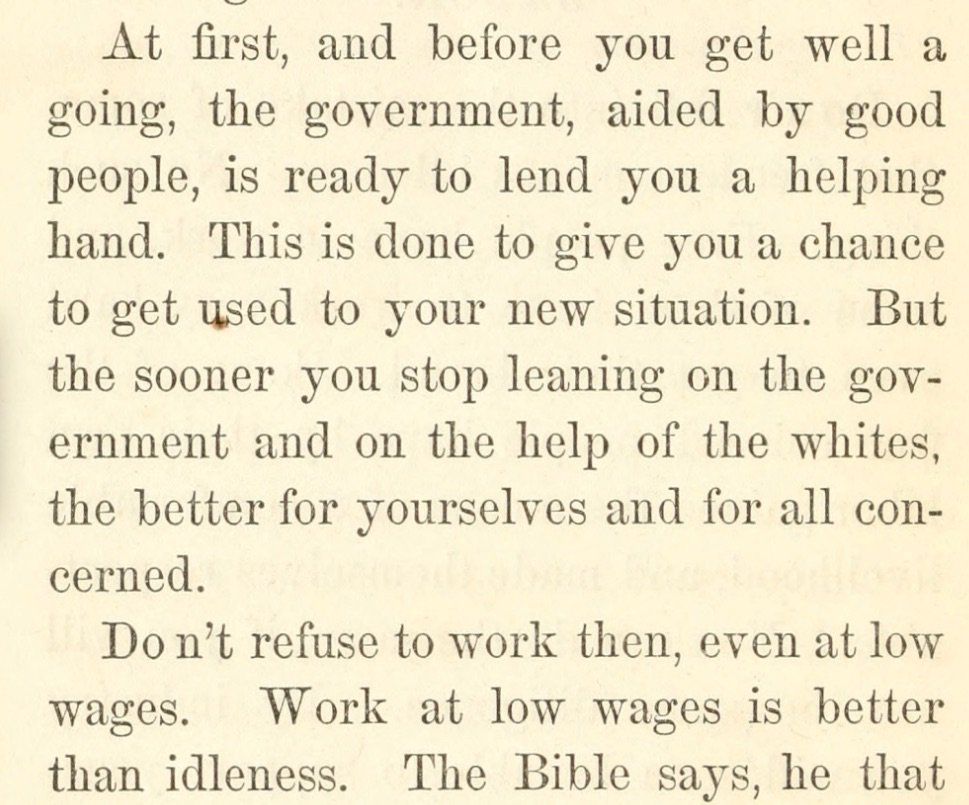-
"Friendly Counsels to Freedmen," a Civil War era tract, shows what formerly enslaved people faced in the pursuit of reparations after abolition. Even for "friendly" white Americans, the clock was already ticking on aid, much less restitution. babel.hathitrust.org/cgi/pt?id=loc.ark:/13960/t8rb7413g;view=1up;seq=7
-
Other advice books written to freedpeople implied that THEY owed a debt to the nation, instead of vice versa. One said: "With treasure & precious blood your freedom has been purchased. Let these sufferings and sacrifices never be forgotten ..." slate.com/human-interest/2017/12/education-during-reconstruction-and-how-formerly-enslaved-black-americans-learned-to-read.html
-
As Saidiya Hartman shows, white Americans after the Civil War often spoke as if "Emancipation instituted indebtedness. ... However, as many former slaves asserted, they had not incurred any debt they had not paid a thousandfold." books.google.com/books?id=kqr4H0sqEPYC&lpg=PA133&pg=PA130#v=onepage&q&f=false
-
Some arguments against reparations carry an implicit assumption that back *then* was the time to seek restitution; the sources show that the argument was made, and that it encountered concerted resistance---ideological & political---from the beginning. @wcaleb/1112726778508906498
